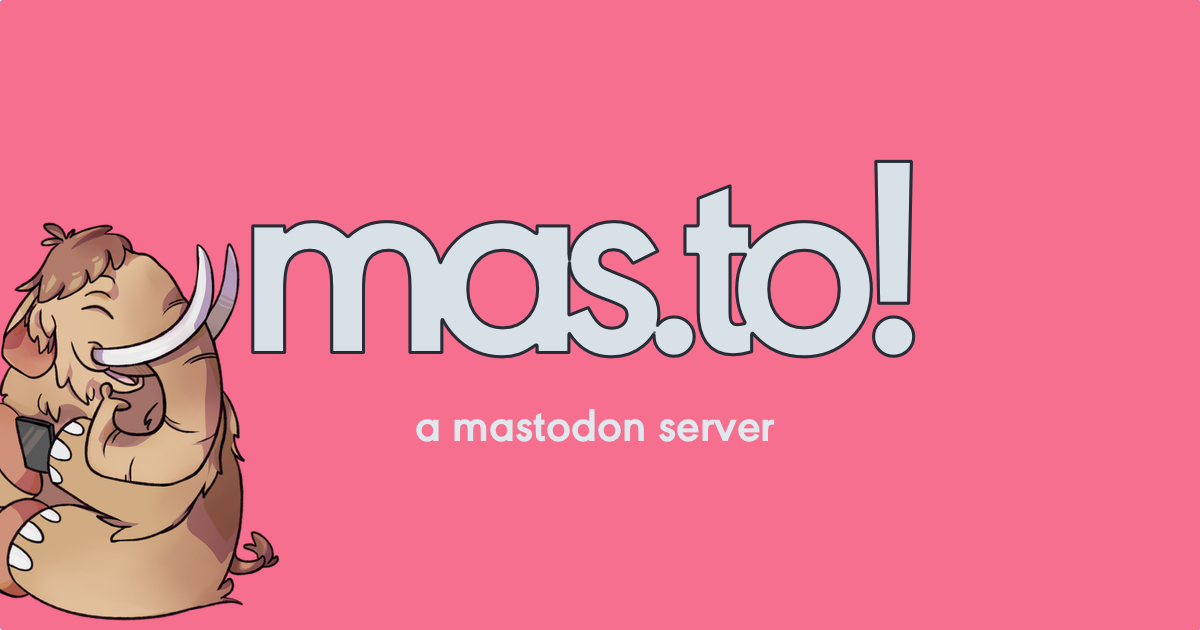Network Inequality<p>Fascinating talk by @appliedkath@twitter.com from <span class="h-card" translate="no"><a href="https://newsie.social/@CIRESnews" class="u-url mention" rel="nofollow noopener noreferrer" target="_blank">@<span>CIRESnews</span></a></span>. It turns out <a href="https://mastodon.social/tags/homophily" class="mention hashtag" rel="nofollow noopener noreferrer" target="_blank">#<span>homophily</span></a> isn't the only reason for misperception – the prominence of opposing voices in our social circles plays a major role too.</p><p>Missed it live? <br>Watch the recording: <a href="https://bit.ly/LSNI-2024-videos" rel="nofollow noopener noreferrer" translate="no" target="_blank"><span class="invisible">https://</span><span class="">bit.ly/LSNI-2024-videos</span><span class="invisible"></span></a></p><p>@CSHVienna@twitter.com <a href="https://mastodon.social/tags/LatePost" class="mention hashtag" rel="nofollow noopener noreferrer" target="_blank">#<span>LatePost</span></a></p>
Recent searches
No recent searches
Search options
Only available when logged in.
mas.to is one of the many independent Mastodon servers you can use to participate in the fediverse.

Hello! mas.to is a fast, up-to-date and fun Mastodon server.
Administered by:
Server stats:
12Kactive users
mas.to: About · Status · Profiles directory · Privacy policy
Mastodon: About · Get the app · Keyboard shortcuts · View source code · v4.3.7
#homophily
0 posts · 0 participants · 0 posts today
Maxime Felder<p>How does similarity and spatial proximity shape neighbour relations within residential buildings?</p><p>➡️ <a href="https://mas.to/tags/Homophily" class="mention hashtag" rel="tag">#<span>Homophily</span></a> & spatial proximity predict <a href="https://mas.to/tags/WeakTies" class="mention hashtag" rel="tag">#<span>WeakTies</span></a>. More distant building residents may be <a href="https://mas.to/tags/FamiliarStrangers" class="mention hashtag" rel="tag">#<span>FamiliarStrangers</span></a> or complete <a href="https://mas.to/tags/strangers" class="mention hashtag" rel="tag">#<span>strangers</span></a> </p><p>Our new paper is out and <a href="https://mas.to/tags/OpenAccess" class="mention hashtag" rel="tag">#<span>OpenAccess</span></a>!<br />Co-authored with the fabulous<br />@marinatulin@bird.makeup <br /><span class="h-card" translate="no"><a href="https://mstdn.io/@pklampros" class="u-url mention">@<span>pklampros</span></a></span> <br />& Guillaume Favre</p><p>🔗 <br /><a href="https://www.tandfonline.com/doi/full/10.1080/14036096.2023.2247404" target="_blank" rel="nofollow noopener noreferrer" translate="no"><span class="invisible">https://www.</span><span class="ellipsis">tandfonline.com/doi/full/10.10</span><span class="invisible">80/14036096.2023.2247404</span></a></p><p><a href="https://mas.to/tags/Sociology" class="mention hashtag" rel="tag">#<span>Sociology</span></a> <a href="https://mas.to/tags/Sociodon" class="mention hashtag" rel="tag">#<span>Sociodon</span></a> <a href="https://mas.to/tags/SocialNetworkAnalysis" class="mention hashtag" rel="tag">#<span>SocialNetworkAnalysis</span></a> <a href="https://mas.to/tags/urbansociology" class="mention hashtag" rel="tag">#<span>urbansociology</span></a> <span class="h-card" translate="no"><a href="https://a.gup.pe/u/sociology" class="u-url mention">@<span>sociology</span></a></span></p>
Demographic Research<p>Daniel Lois and Oliver Arránz Becker find that homophily in child status reduces the likelihood that social network relationships will be discontinued over time. <a href="https://sciences.social/tags/homophily" class="mention hashtag" rel="nofollow noopener noreferrer" target="_blank">#<span>homophily</span></a> <a href="https://sciences.social/tags/socialnetworks" class="mention hashtag" rel="nofollow noopener noreferrer" target="_blank">#<span>socialnetworks</span></a> <a href="https://www.demographic-research.org/volumes/vol48/2/" rel="nofollow noopener noreferrer" target="_blank"><span class="invisible">https://www.</span><span class="ellipsis">demographic-research.org/volum</span><span class="invisible">es/vol48/2/</span></a></p>
Ben Waber<p>Next was a short talk at <a href="https://hci.social/tags/CogSci" class="mention hashtag" rel="nofollow noopener noreferrer" target="_blank">#<span>CogSci</span></a> by Sina Fazelpour on <a href="https://hci.social/tags/homophily" class="mention hashtag" rel="nofollow noopener noreferrer" target="_blank">#<span>homophily</span></a> effects. The question investigated here is specifically the difference between homophily of identity vs. opinions. Which one is better? It depends! <a href="https://www.youtube.com/watch?v=t18gU5kvDFg&t=3s" rel="nofollow noopener noreferrer" target="_blank"><span class="invisible">https://www.</span><span class="ellipsis">youtube.com/watch?v=t18gU5kvDF</span><span class="invisible">g&t=3s</span></a> (8/10)</p>
Aurélien Grosdidier ✅<p><a href="https://mastodon.social/tags/Homophily" class="mention hashtag" rel="nofollow noopener noreferrer" target="_blank">#<span>Homophily</span></a> and minority-group size explain perception biases in <a href="https://mastodon.social/tags/social" class="mention hashtag" rel="nofollow noopener noreferrer" target="_blank">#<span>social</span></a> <a href="https://mastodon.social/tags/networks" class="mention hashtag" rel="nofollow noopener noreferrer" target="_blank">#<span>networks</span></a> | <a href="https://mastodon.social/tags/bias" class="mention hashtag" rel="nofollow noopener noreferrer" target="_blank">#<span>bias</span></a> <a href="https://www.nature.com/articles/s41562-019-0677-4" rel="nofollow noopener noreferrer" target="_blank"><span class="invisible">https://www.</span><span class="ellipsis">nature.com/articles/s41562-019</span><span class="invisible">-0677-4</span></a></p>
ExploreLive feeds
Mastodon is the best way to keep up with what's happening.
Follow anyone across the fediverse and see it all in chronological order. No algorithms, ads, or clickbait in sight.
Create accountLoginDrag & drop to upload
